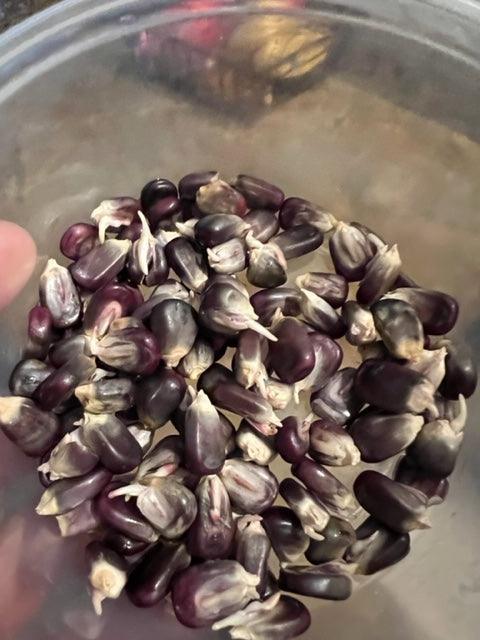
DIY Guide - Make Sprouted Seed Tea With Blue Corn
Mark AshworthShare
Learn how to make Sprouted Seed Tea using blue corn and why it is a beneficial addition in your watering to benefit plant vigor and yield.

Blue corn sprouted seed tea (SST) is an excellent way to give your plants added Cytokinins, vitamins, minerals, phytohormones, amino acids and antioxidants. By sprouting your corn seeds prior to making your SST it improves your plants nutrient uptake and immediate bio-availability in the soil.
How Much Corn to Use
For a 2.5 gallon batch, use roughly 1/4 cup or 1oz of dry kernels.
For a 5 gallon batch, use roughly 1/2cup or 2oz dry kernels (The amount pictured above)
For a 50 gallon batch, use 5 cups of dry kernels.
How to Make Sprouted Seed Tea with Blue Corn
-
Rinse corn in a strainer thoroughly.
-
Soak kernels in non-chlorinated tap water overnight, 8-12 hours.


4. While letting seeds sit, check them daily to ensure the seeds are not drying out. Keeping the paper towel wet is ideal to ensuring the seeds do not dry
5. Once seeds have sprouted roughly 1/4", add roughly 1/2 - 1 cup of water and blend into as fine as possible.

6. If you are hand watering and not through hand sprayer or irrigation you can mix the mush directly into your plant water and water in.
7. If you are watering through a sprayer or irrigation, use a strainer or cheese cloth to strain the mush from the liquid. Make sure to thoroughly rinse all usable white liquid off the mushed seeds. Repeat this process until rinse water is clear.
When To Use Blue Corn SST
Root Drench:
We recommend adding corn SST to your watering regiment one time monthly at minimum through and once during the first 30 days of flower.
Foliar Applications:
Apply a foliar sst application once a month during vegetative growth for best results.
Why Use Blue Corn SST
Corn contains Cytokinins which helps promote plant vigor, helps increase cell division and assists plants in generating new growth sites and shoots.Read More About These Key Soil-Based Beneficial Insects
- Oribatid Mites (Oribatida)
- Rove Beetles (Dalotia coriaria)
- Stratiolaelaps scimitus (Hypoaspis miles)
- Springtails (Collembola)
- Red Wiggler Worms (Eisenia Fetida)
